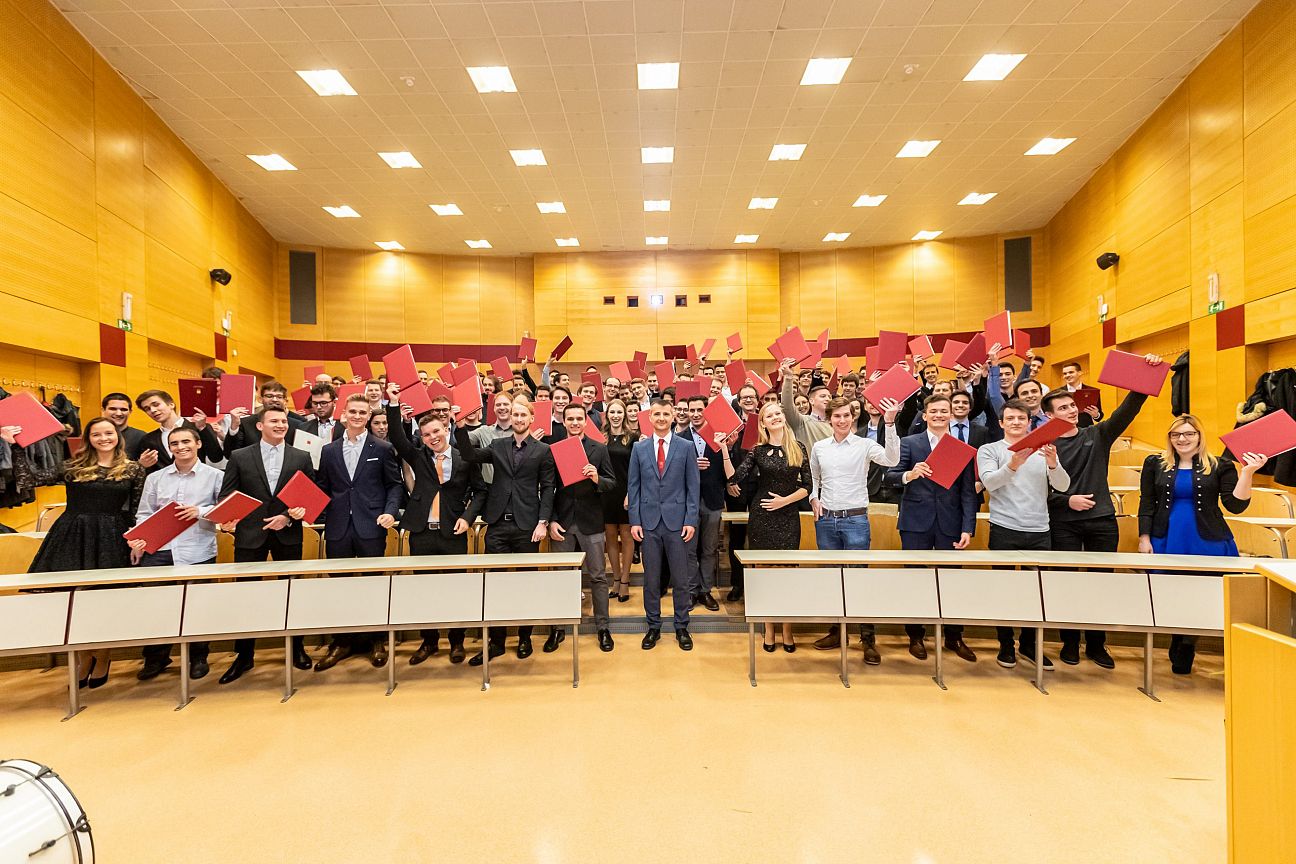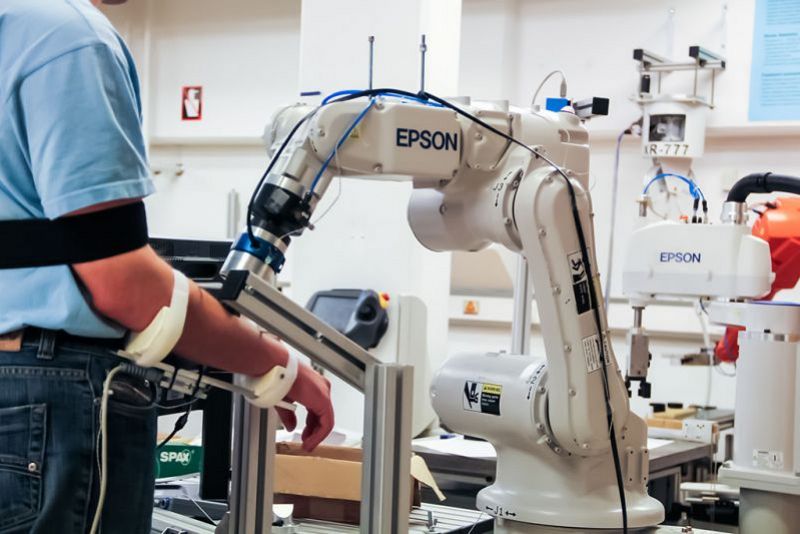
Elektrotehnikauni
univerzitetni študijski program 1. stopnje
Brez elektrotehnike svet, kot ga poznamo, ne bi obstajal
Univerzitetni študijski program Elektrotehnika ponuja širok nabor temeljnih teoretičnih in strokovnih elektrotehniških znanj, ki so podprta z uporabnimi programerskimi spretnostmi. S temi študent razvije sposobnost analitičnega razmišljanja, ki je ključnega pomena za odličnost v razvoju in raziskovanju na elektrotehniškem področju in širše. Študijski program študentom omogoča široko izbirnost znotraj predmetnikov in delo na realnih projektih v okviru najsodobnejših svetovnih meril in standardov.
Kako poteka študij?
Študij traja 3 leta oziroma 6 semestrov in je vreden 180 kreditnih točk (ECTS).
Prva dva letnika študija potekata po enotnem predmetniku, v tretjem letniku pa se študenti usmerijo v eno od štirih študijskih smeri (Avtomatika, Elektronika, Energetika in mehatronika, Informacijsko komunikacijske tehnologije).
Študent si v zimskem semestru tretjega letnika izbere mentorja za diplomsko delo ter odda dispozicijo diplomskega dela. V letnem semestru tretjega letnika študent izdela in zagovarja diplomsko delo.
Po opravljeni diplomi študent pridobi naziv diplomirani inženir elektrotehnike (UN) oz. diplomirana inženirka elektrotehnike (UN).
Kakšni so temeljni cilji programa?
Temeljni cilj univerzitetnega programa Elektrotehnika je študentom zagotoviti:
- široko in kakovostno temeljno znanje s področja elektrotehnike,
- znanje, potrebno za samostojno razvojno in raziskovalno delo,
- študij v sodobno opremljenih učilnicah in laboratorijih,
- mednarodno uveljavljene pedagoge in raziskovalce,
- interdisciplinarna znanja, ki so uporabna tudi na področjih medicine, biologije, ekonomije, strojev, računalništva, športa, psihologije in mnogih drugih,
- vseevropsko primerljivost dosežene izobrazbe,
- odlične osnove za nadaljevanje študija na magistrskem programu Elektrotehnika ali programu katere koli druge tehniške stroke.
Katere kompetence študenti pridobijo s programom?
- Zmožnost definiranja, razumevanja in ustvarjalnega reševanja problemov na področju elektrotehnike in širše,
- sposobnost kritičnega mišljenja na podlagi analize in sinteze,
- poklicno, okoljsko in socialno odgovornost,
- sposobnost aktivnega strokovnega sporazumevanja v pisni in ustni obliki,
- sposobnost optimalne uporabe informacijsko-komunikacijske tehnologije in njenega razvoja,
- sposobnost samostojnega sledenja najnovejšim dosežkom in pridobivanja novih znanj,
- sposobnost timskega dela s strokovnjaki z različnih področij.

Podrobne informacije o študiju 1. stopnje ELEKTROTEHNIKA UN
Arhiv predstavitvenih zbornikov
- Predstavitveni zbornik 2016/2017
- Predstavitveni zbornik 2017/2018
- Predstavitveni zbornik 2018/2019
- Predstavitveni zbornik 2019/2020 za 1. letnik
- Predstavitveni zbornik 2019/2020 za vpisane v 2. in 3. letnik
- Predstavitveni zbornik 2020/2021
- Predstavitveni zbornik 2020/2021 za vpisane v 3. letnik
- Predstavitveni zbornik 2021/2022
- Predstavitveni zbornik 2022/2023
- Predstavitveni zbornik 2023/2024



